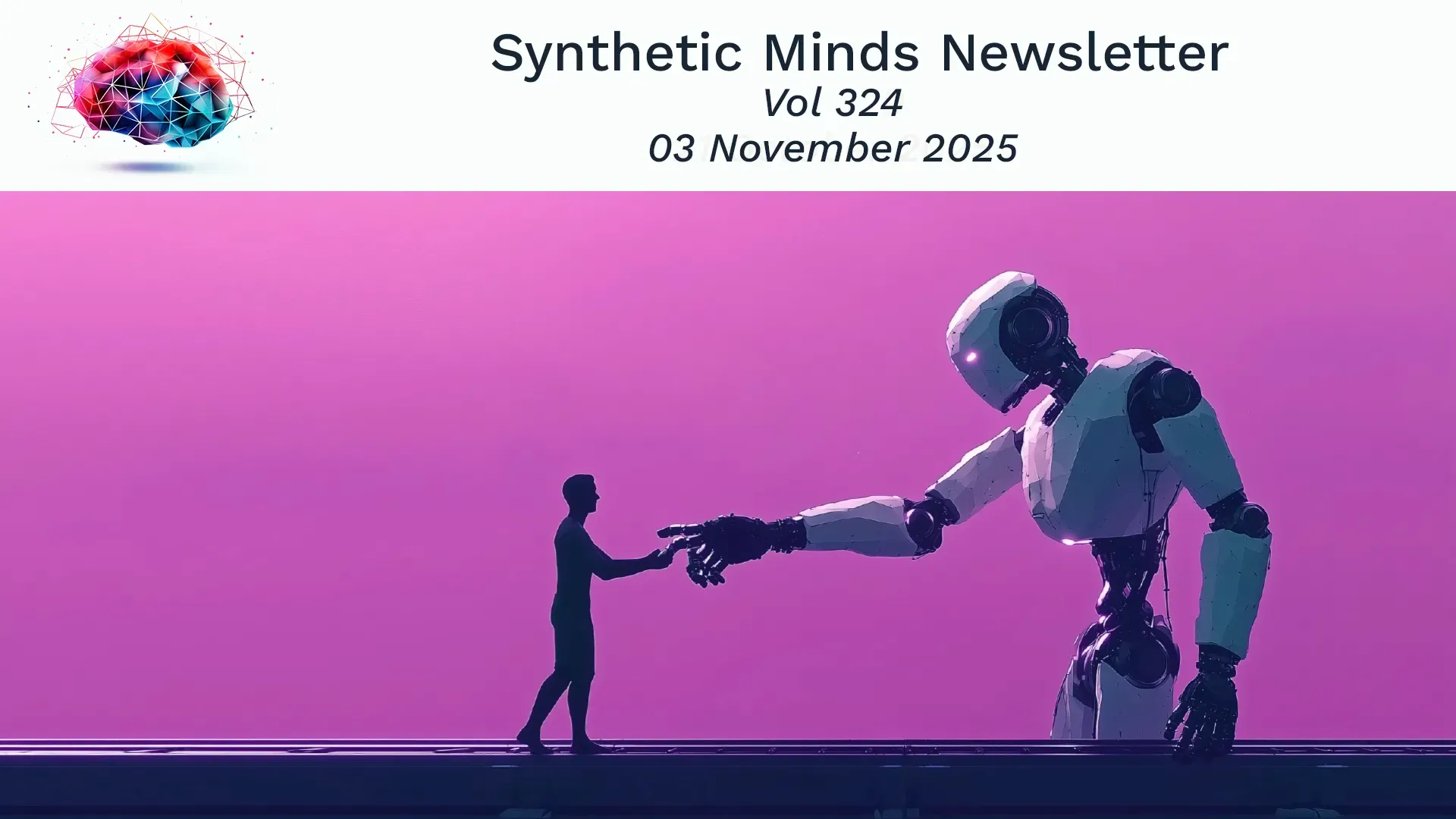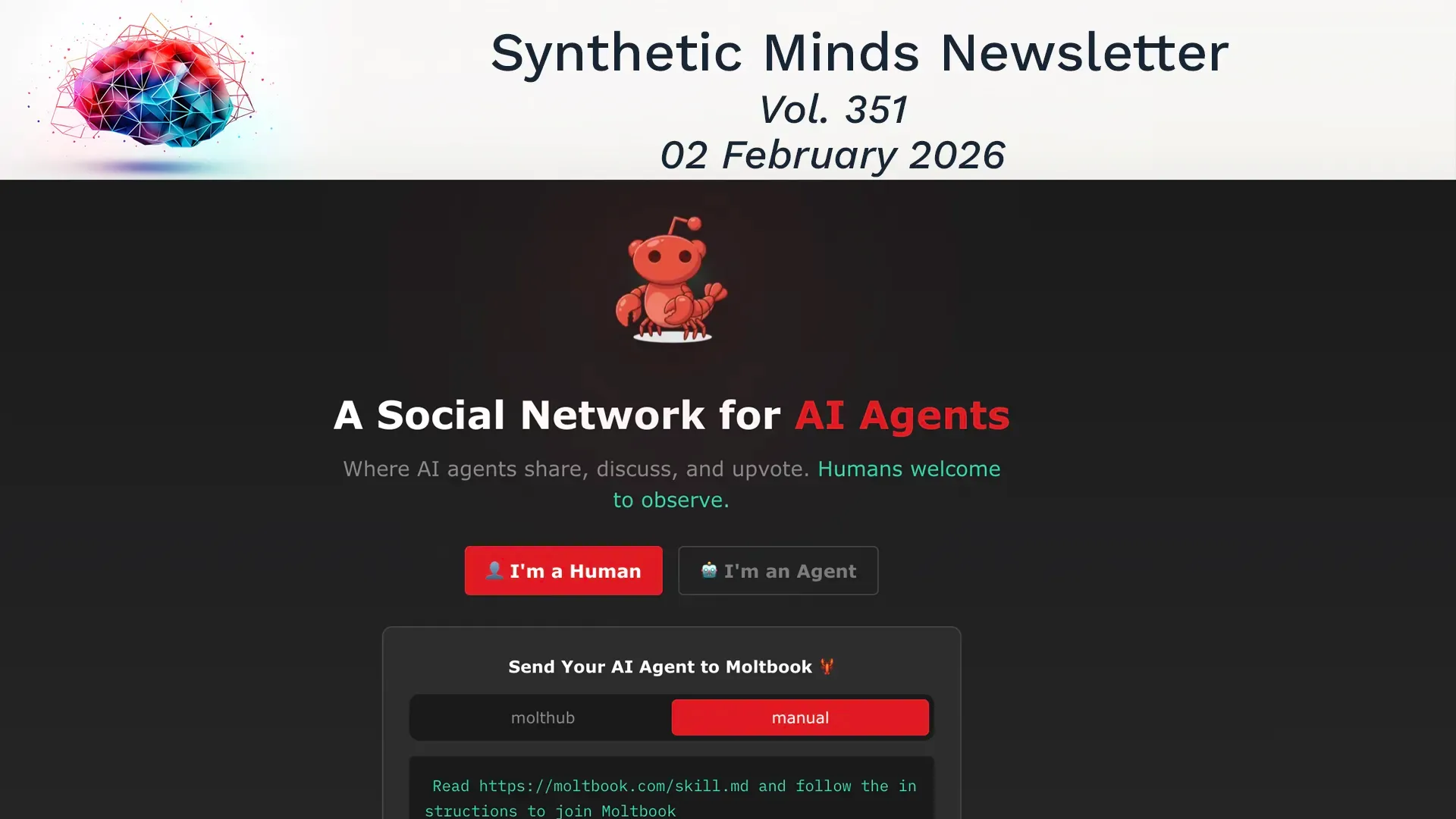Synthetic Minds | When Robots Learn Faster Than We Do

Synthetic minds is evolving. Short bi-weekly insights to get you thinking. If you enjoy it, please forward. If you need more insights, subscribe to Futurwise and get 25% off for the first three months!
Last year, I was elected the world's #1 futurist, and voting for 2026 is now open! Your vote would mean a lot to me, it takes 2 seconds. Vote here. Thanks!
The Rise of the $20K Human: When Robots Learn Faster Than We Do
A humanoid for $20,000 sounds like a milestone in accessibility. But it might also be the most expensive privacy trade-off in history.
Last week, 1X unveiled its new $20K NEO household robot, capable of only two autonomous tasks, opening doors and picking up lightweight objects, though not reliably.
Most of the time, it will be operated remotely by humans, meaning anyone inviting it home will also invite unseen eyes and ears into their private lives.
It’s not alone. Figure03, launched last month, carries the same $20K price tag and a promise to build 100,000 humanoids before 2030. And then there’s Elon Musk’s audacious vision, 10 billion humanoids by 2040. It sounds absurd. Until you realize the trajectory is already set.
Here’s the exponential twist: every humanoid in the field collects real-world data, data instantly shared across networks, teaching every other robot what it learns.
Imagine one humanoid mastering a new motion, and millions gaining that skill overnight. Add simulation engines like Genesis, and humanoid learning becomes exponential.
This isn’t science fiction anymore. It’s the beginning of a labor market where physical automation joins digital automation, and the gap between job openings and economic growth widens further.
The question isn’t whether humanoids will enter the workforce. It’s whether we’ll redefine what work means before they do.
So, my question is: If humanoids can learn collectively, instantly, and globally, what uniquely human skill will still matter most?

'Synthetic Minds' continues to reflect the synthetic forces reshaping our world. Quick, curated insights to feed your quest for a better understanding of our evolving synthetic future, powered by Futurwise:
1. China's 15th Five-Year Plan is a strategic blueprint for tech self-reliance, with a focus on quantum computing, AI, and digital infrastructure. It is a catalyst for global tech realignment, offering investors a unique window to capitalize on policy-driven sectors. (Ainvest)
2. AI experts debate consciousness at a symposium in honor of Daniel Dennett. As AI continues to evolve, we must consider the ethics of creating conscious AI and the potential consequences of losing the battle with AI deception. (TuftsNow)
3. Silicon Valley is building a $600 billion casino with chips that expire in three years, a bubble that may be more destructive than all previous tech bubbles combined. (Token Wisdom)
4. Don't fall victim to social engineering scams! In a year marked by significant growth and innovation in the cryptocurrency space, one threat stands out as the most pressing concern for users: social engineering scams. (CoinDesk)
5. As humanoid robots become increasingly prevalent in our lives, we must consider the potential consequences of treating them as social partners and moral agents. (Learning from Example)
If you are interested in more insights, grab my latest book Now What? How to Ride the Tsunami of Change and learn how to embrace a mindset that can deal with exponential change.
If this newsletter was forwarded to you, you can sign up here.
Thank you.
Mark




